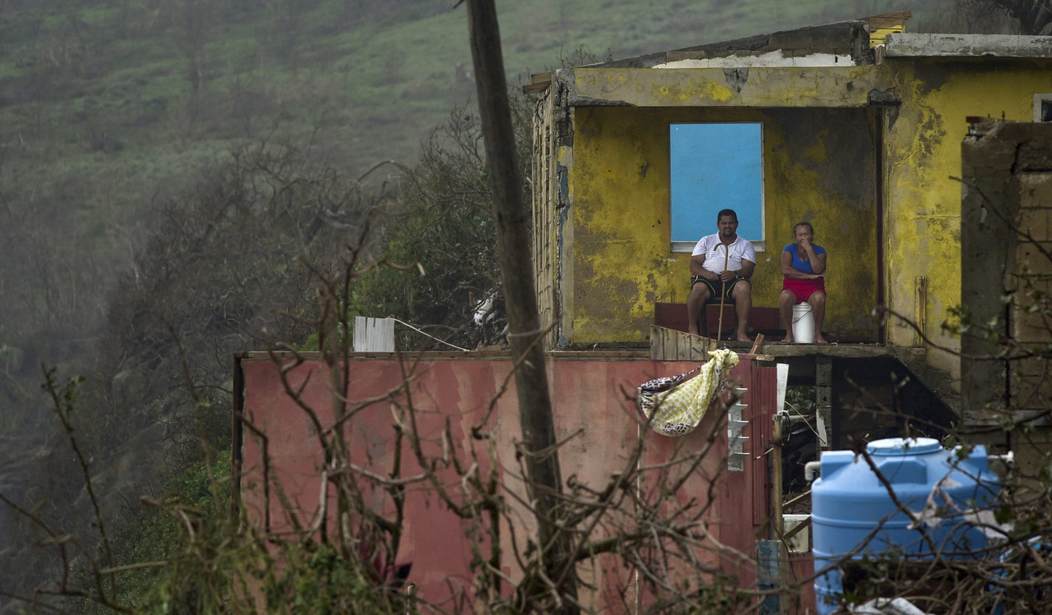A new study of the Hurricane Maria mortality rate found that deaths connected to the destructive storm were 70 times the official U.S. government estimate of 64 fatalities.
The Harvard study, published today in the New England Journal of Medicine, found that the new death toll of 4,645 is still “likely to be conservative.”
Damage on Puerto Rico and the U.S. Virgin Islands was estimated at more than $90 billion after the storm, and as of last week at least 13,870 electricity customers were still without power as a result of the September storm. The Federal Emergency Management Agency said on May 18 that it had extended “the lease, generation and maintenance of all three mega generators” but said the U.S. Army Corps of Engineers “will no longer provide line restoration work” on the U.S. territory.
The new hurricane season officially begins Friday.
The mortality study, which relied on extensive surveying of hurricane survivors, found that “approximately one third of post-hurricane deaths were reported by household members as being caused by delayed or prevented access to medical care, and nearly 1 in 10 was attributed directly to the hurricane by respondents.”
“Our results indicate that the official death count of 64 is a substantial underestimate of the true burden of mortality after Hurricane Maria. Our estimate of 4,645 excess deaths from September 20 through December 31, 2017, is likely to be conservative since subsequent adjustments for survivor bias and household-size distributions increase this estimate to more than 5,000,” researchers wrote.
They calculated, based on sampling, a 95 percent likelihood the death toll fell between about 800 and 8,500 people.
“Interruption of medical care was the primary cause of sustained high mortality rates in the months after the hurricane, a finding consistent with the widely reported disruption of health systems. Health care disruption is now a growing contributor to both morbidity and mortality in natural disasters,” the study added. “In the United States, this phenomenon has been observed in the aftermaths of Hurricane Katrina, Superstorm Sandy, and more recently Hurricanes Harvey and Irma, in which nursing home residents and those dependent on life-sustaining equipment were disproportionately affected. Growing numbers of persons have chronic diseases and use sophisticated pharmaceutical and mechanical support that is dependent on electricity.”
San Juan Mayor Carmen Yulín Cruz, who publicly tangled with President Trump in the wake of the storm with her pleas for disaster assistance, tweeted in response to the report today, “It took too long to understand the need for an appropriate response was NOT about politics but about saving lives.”
George Washington University’s Milken Institute School of Public Health has been commissioned by the Puerto Rican government to conduct a study on hurricane-attributable deaths; results are expected to be released this summer.









Join the conversation as a VIP Member